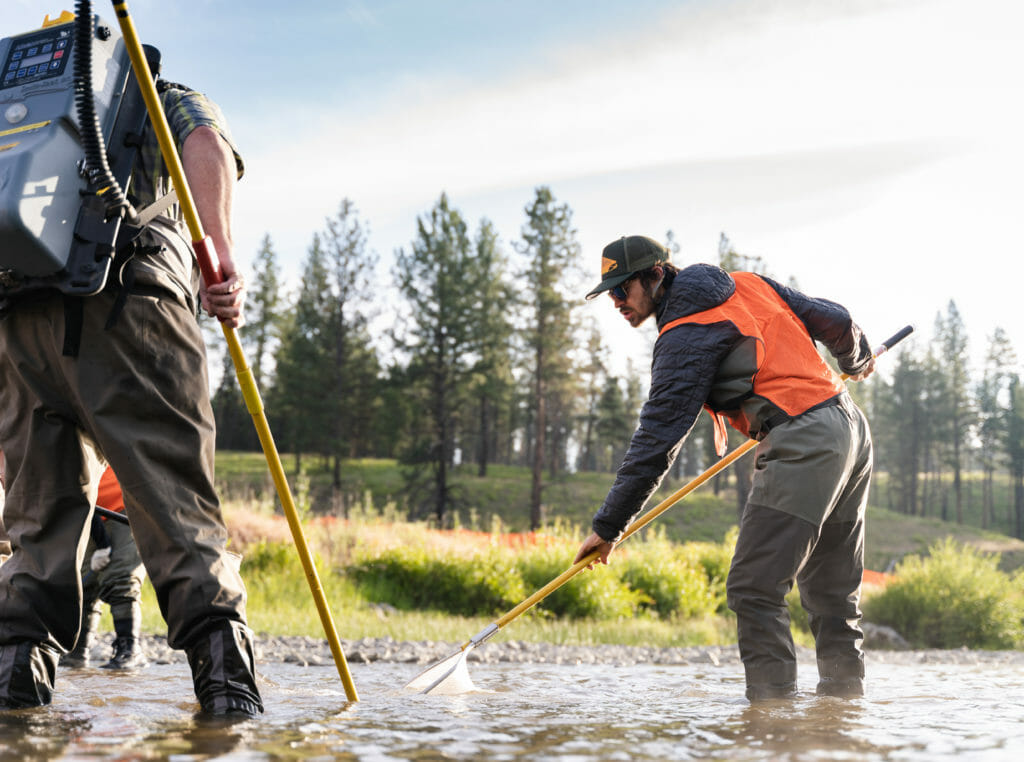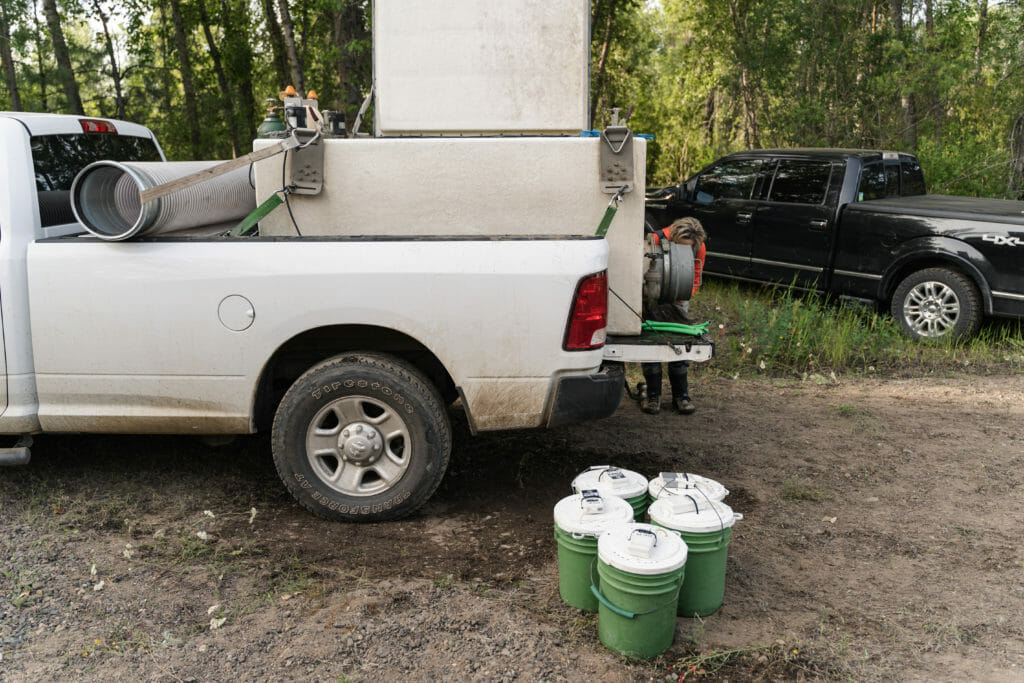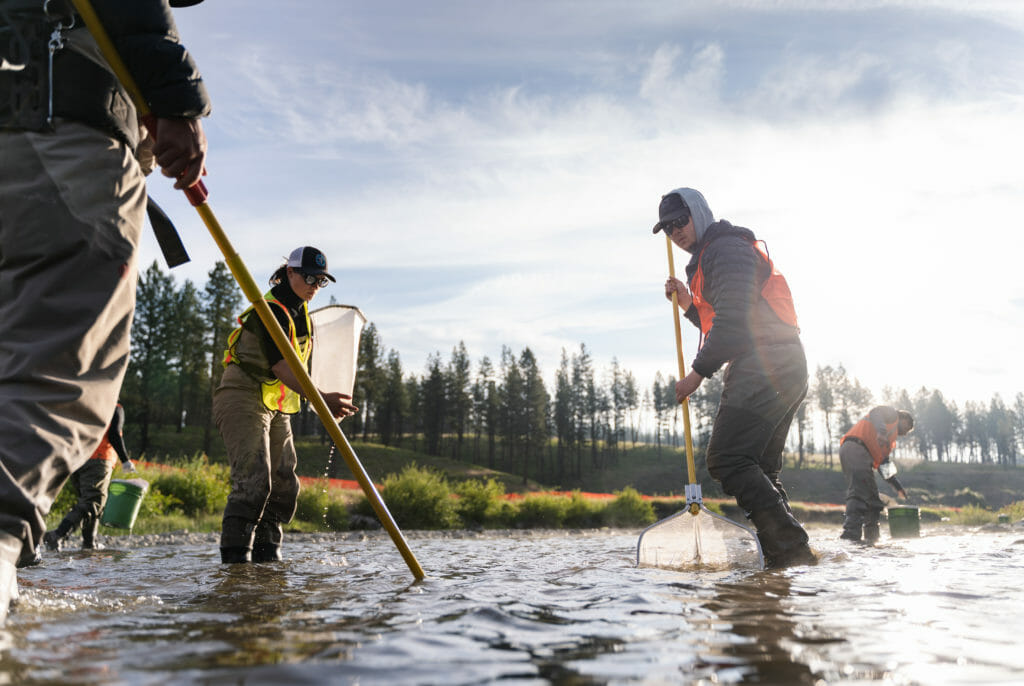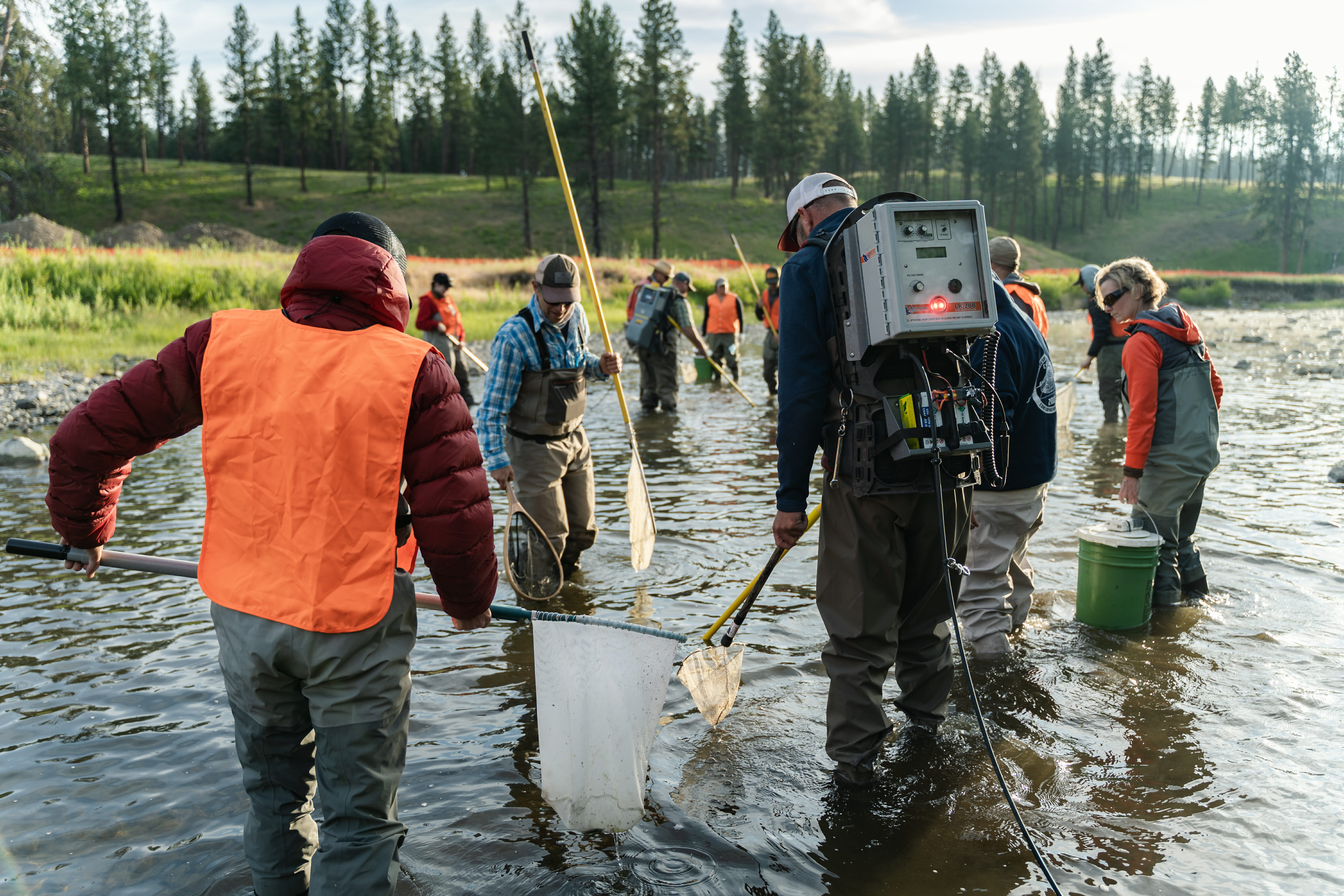Editor’s note: The TU Costa 5 Rivers Program sent a handful of college students to the Columbia River basin to study the challenges facing the drainage’s fisheries.
At 4:30 a.m. we stumbled from our tents and into brisk chilly air. We zipped up our jackets, sipped hot coffee and ate warm oatmeal.
After packing camp, we hustled across the street from Bird Track Springs Campground to meet staff of the Confederate Tribes of the Umatilla. We met them to salvage fish from the Grande Ronde River.

At 5:30 a.m., Ian Wilson, a tribal fish habitat specialist, and thirteen volunteers gathered in the early light. We salvaged early because once it reaches 65°, it can harm fish. Why salvage? The stretch of water that we de-fished is undergoing a large habitat restoration project.
Ian said that people call this a “dead river.” Due to past human influences in this part of the Grande Ronde, the water gets too hot for trout and salmon, so they swim upstream to find cooler stretches.
Past influences led to a simplified and dysfunctional old channel that includes limited access for the river to reach its historic floodplain habitat. The project team is creating 47 new medium side channel pools and restoring 101 acres of floodplain habitat. In addition, the project team will construct 300 fish habitat wood structures and 228 floodplain roughness features.

To complete the habitat project, a diversion channel was put in place to allow for continued flows. We captured and placed all of the fish and mussels upstream of the diversion channel. We placed the fish immediately into bubbling buckets and later into an oxygenated tank.
We salvaged a number of sculpin, lamprey ammocoetes, juvenile steelhead, and chinook parr. When we approached a boulder, we predicted we’d find a juvenile steelhead, and everyone would do their best to not let the fish slip away.

It was fascinating to witness the amount of fish that inhabited the river, even with a lack of healthy habitat. You can only wonder what this river will look like once all the work is done. It may be in fact, not a dead river.


